
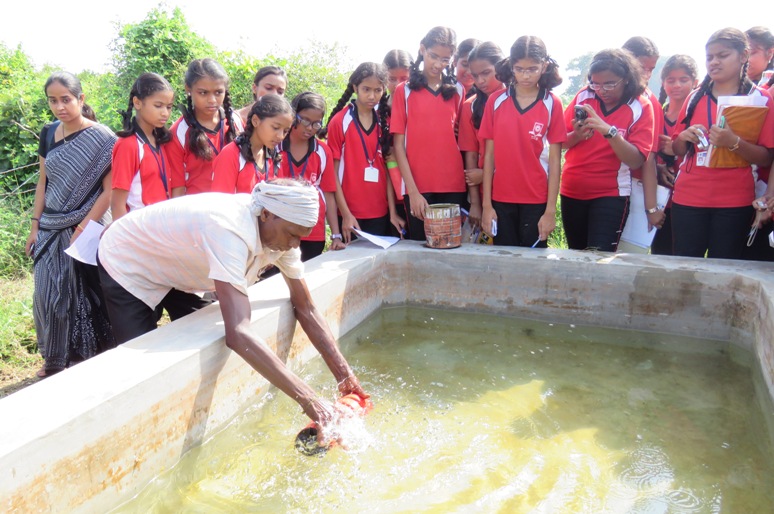
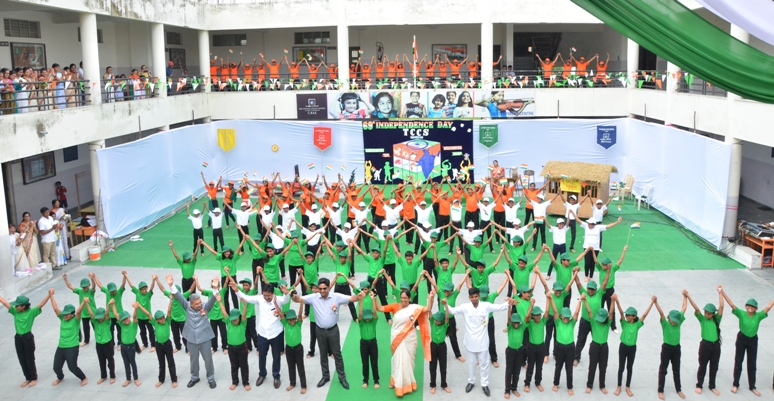
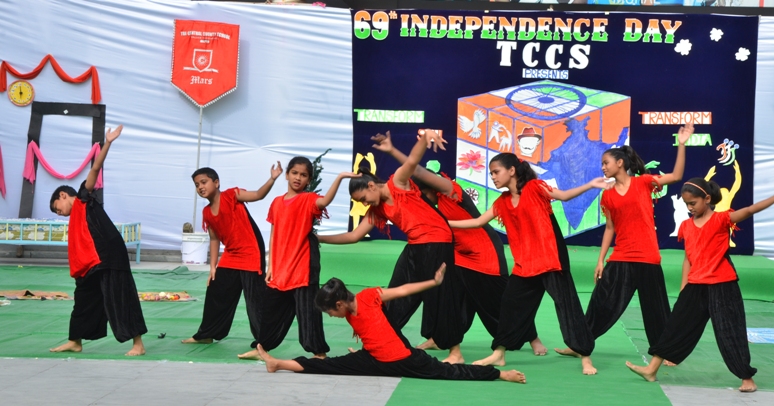
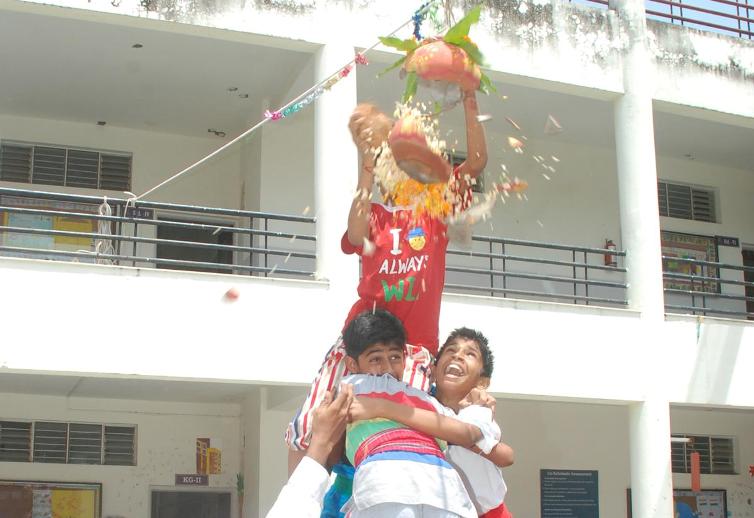
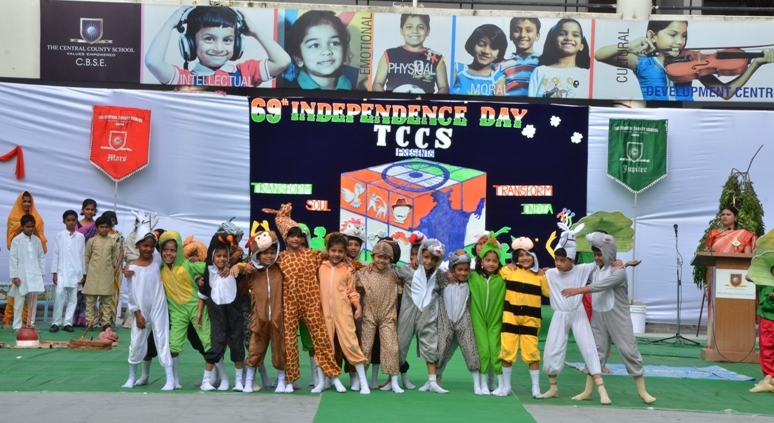
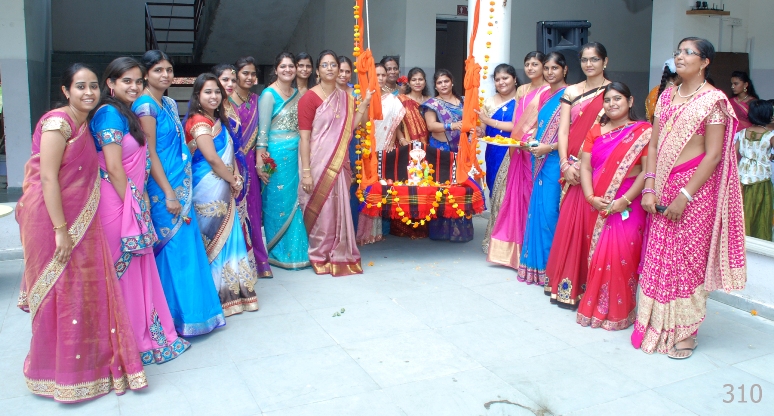
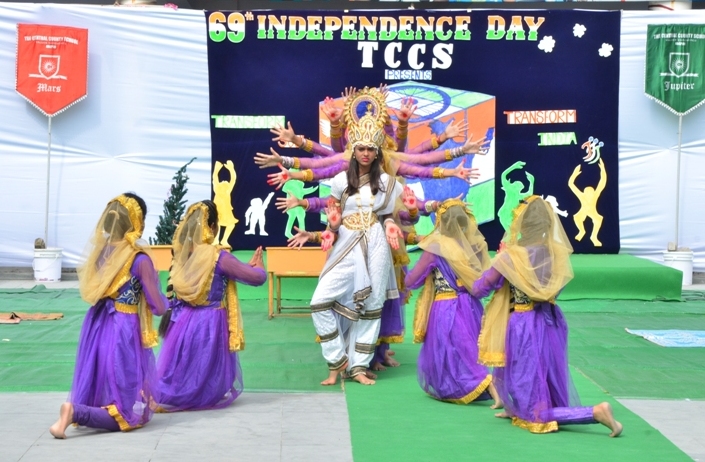
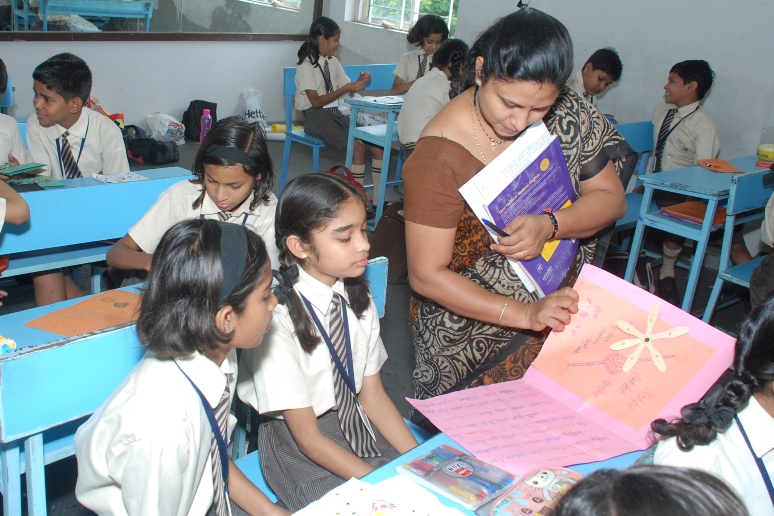

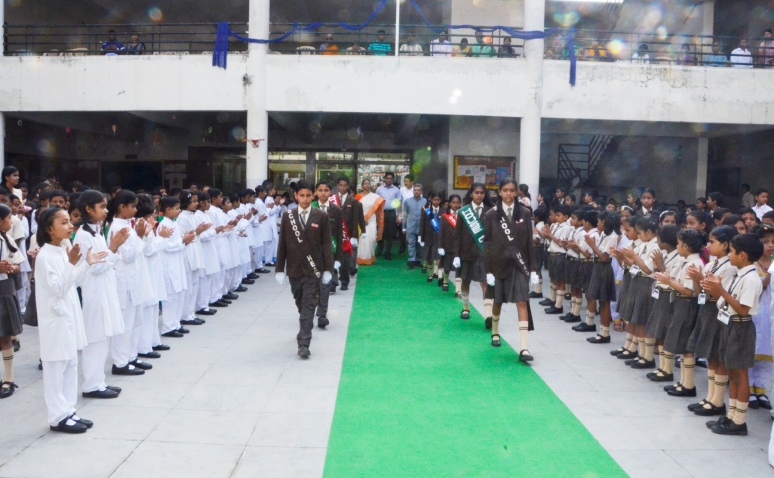
Co Curriculum Activities
Co-curriculum activities are an integral part of the balanced curriculum and provide ample opportunities to children's experience in creativity, imagination, exhibition, presentation, expression and representation and serve the real objective of education and act as effective instruments to draw out the best in the children. The scope of these activities is wide-ranged taking into account the different mental faculties and stages of development.
Literary Activities
Children need motivation and encouragement to participate in wide array of events, such as, debate, elocution, quiz contest, recitation, story, poem and essay writing competitions, storytelling, symposium and newspaper reading competition, brain-storming discussions, pair and group discussion, wall magazine, dramatics, role play & library work for self-advancement, self-confidence and resourcefulness. These activities removes learner's frustration, tension, mistrust and evoke the feelings of fulfillment, enrichment and togetherness besides they also strengthen application of learning experience and provides diverse opportunities to draw out the innate powers and genius in children.
Development of hobbies and interests
Hobbies and interest enable children to utilize their leisure for recreation under the guidance of the teacher. The children could pick their area of interest and pursue the same as hobby. Photography, drawing, dancing, singing, painting, clay modeling, making cartoons, designing, embroidery, paper craft, collecting stamps, coins, pictures, feathers, pieces of wood, stones, pebbles & rocks, match boxes, newspaper cuttings are the few recreation activities that could enable sharpening of inborn qualities, aptitudes, and aesthetic values in children. Hobbies and interest lighten the stress of studies and provide energy to the body, soul and mind for effective learning.
Craft Activity
Craft activities have greater reproductive values and arouse constructive and creative interest in the child. The craft activities, such as, clay modeling---making clay balls, beads, vegetables, fruits, birds, animals, statues, utensils, bricks, bamboo works making baskets, beads work, spinning, tailoring, leather work, wood work, embroidery, knitting, toy making, dyeing, card board work, gardening and coir work, brings about the development of the child's affective, psycho- motor and intellectual aspects and create an awareness of his potential for productive activity and inculcate the attitude to respect manual work and manual workers by instilling the sense of dignity of labor.
Aesthetic and cultural activities
Creative arts which include music, dance, songs, plays, drawing, painting, sculpture, decoration, making charts and models, classical dance, folk dance, variety show enable the children to imbibe cultural heritage and understand Indian traditional art and culture, appreciate the life and talent of traditional artisans in different parts of our country. The fusion of various activities increases and develops the learner's artistic interest, sensitivity, expression of innate qualities creative imagination and attitude of community living.
Educational tours & Excursions
The curriculum in its framework has educational tours & excursion as an essential tool of learning. Visits to farm house, dairy farm, goat farm, poly-houses, poultry farms, factories, mills, banks, post office, hospitals, business centers, power stations, industrial areas and zoos widen the mental horizon of children and facilitate acquisition of real information. Visits to historical places – castles, forts, tombs, caves, museums, religious places, statues of martyrs and patriots help children understand the rich cultural heritage of India and enable precipitation of the idea of Indian unity and integrity in every child's subconscious imagination. Excursions to dams, rivers, lakes, plains, seacoasts, mountains, forests, wild life projects, national parks, mines, valleys, hills, bird-sanctuaries, waterfalls and water reservoir induces practical observation and provides thrilling and enduring experiences and will enable establish the sense of proximity with nature and also realize & appreciate the fact that India is endowed with exotic natural locales and mineral wealth.
Sports and Physical Activities
Sport and physical activities are important agenda in our school's curriculum. Physical activities of rhythmic, gymnastics, combative, calisthenics, athletics, Yogasanas, drill marching, skipping, swinging, swimming, running, judo, archery, jumping, wrestling, rope climbing, Indian and western games, kabbadi, kho-kho, cricket, foot ball, basketball, tennis, table tennis, badminton, skating, volley ball, hand ball and hockey, contribute to physical fitness and also administer the required doses of energy for physical & mental development in children. Besides, such activities also develop the qualities of self-discipline, co-operation, group work, sportsmanship, self-determination, perseverance, courage, self-confidence, formation of good habits, honesty and team spirit which play a rather defining role in molding of personality.
Indoor Activities
- Badminton
- Table Tennis
- Carom
- Chess
- Gymnastics
- Aerobics
- Yoga
- Karate
Outdoor Activities
- Athletic Runs & Games
- Basketball
- Volleyball
- Skating
- Cricket
- Tea-kwon –Do
- Kho-Kho
- Kabbadi
- Throw ball
Adventure & Physical Education
- Trekking
- Jogging
- Rappelling
- Mountaineering
- Fitness Camp
- Archery
- March Past
- Summer Camp
- Cross Country Runs
- Scout and Guide
Avenues for participation in national & international forums events are also in the offing. Training programmes under strict vigilance of expert in-house Physical instructors & Coaches and those expertise from outside to improve performance levels & impart training on hi-tech sporting environment to the sports aspirants are on TCCS agenda for physical education.
